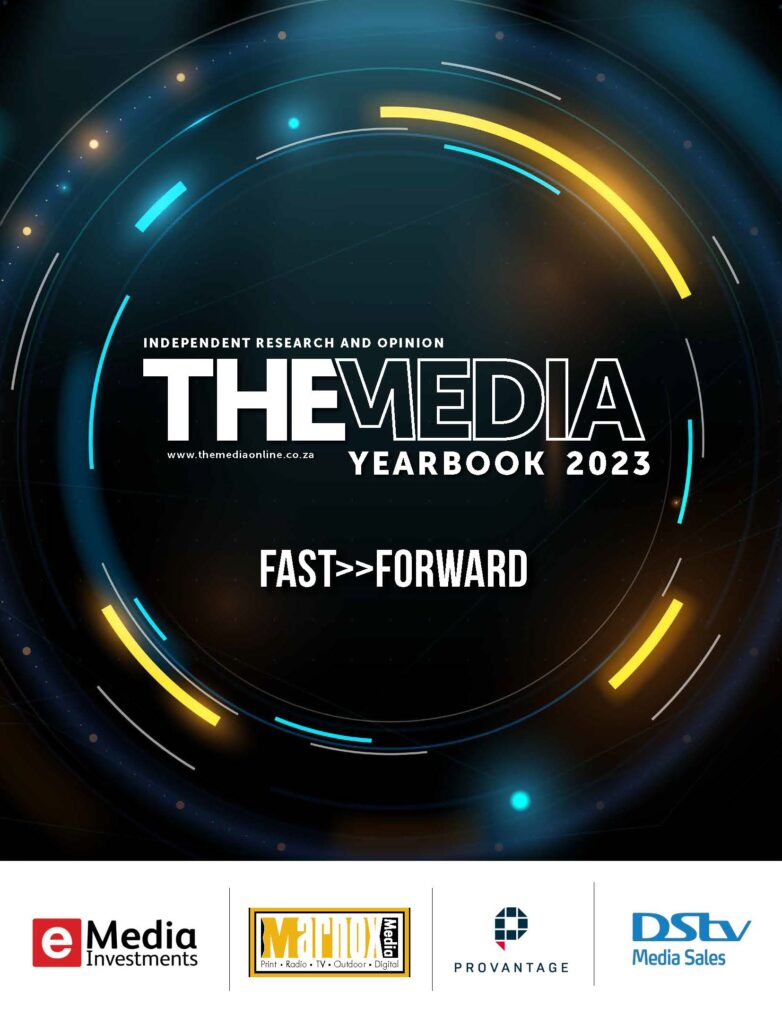The pessimism engulfing our industry is influenced by rapidly declining revenues, especially for print. This reality is a headache for newspaper publishers, in South Africa and globally, who are contending with plummeting circulation numbers over time.

But if you take a closer look at global media trends, they will show you our industry is also facing an exciting time of tremendous opportunity in the midst of this turbulence – mostly brought on by converging socio-economic dynamics and technology.
I am probably one of the few media executives who, in the midst of all the doom and gloom in our industry, still sees a beacon of light I believe will help us, not only to cope, but thrive as media organisations.
However, hope alone will not extract us from this existential threat hovering around our businesses. We need a paradigm shift, anchored on the willingness to urgently embrace change and adapt to new technologies, while staying true to our core values and principles as an industry.
As Deloitte wrote recently, “amplifying change” has been a positive force for the media industry, which is now riding a wave of unprecedented growth — propelled by a number of converging factors.
Firstly, technological advances are making it easier than ever before to create, distribute, and consume media content. This has enabled new business models, such as streaming video services, to emerge and further shape the media landscape. Many news publishers have struggled with incorporating these advancements into their business plans and workflows.
But as soon as they realised that they cannot stand in the way of technological advancements, they embraced them.
Secondly, consumer demand for media content has increased with the rise of mobile devices and social media. People are now more connected than ever before and are consuming more media than ever before. We see this here in South Africa.
While these new instruments have democratised access to information and expanded the readership universe, they have a critical downside that comes in the form of misinformation and disinformation. Despite being obsessed with click bait and numbers, sometimes at all costs, the tools of social media are vulnerable to abuse and manipulation. So this fatal flaw in their information gathering and dissemination process, while useful sometimes, is an opportunity for traditional media businesses.
Trust can’t be underestimated
For example, when the proverbial chips are down in any society, consumers know they can always rely on trusted brands to provide credible and reliable news content. Very few digital platforms can compete sustainably with the newsroom process and its systemic and laborious tradition of taking time to verify information before publishing. This is still a differentiator that cannot be underestimated.
Thirdly, the industry is influenced by broader socio-economic trends, such as increasing income inequality and the growing influence of digital platforms. These converging dynamics are creating unique opportunities for the media industry.
Companies are now able to reach more consumers than ever before, and are able to target their content to specific audiences. This has enabled businesses to create more tailored content and to monetise it more effectively. Furthermore, the industry is also benefiting from the rise of new technologies such as artificial intelligence and virtual reality, which allow them to create more immersive experiences for their customers.
At Arena Holdings we have just launched and deployed five news Apps – for our three daily newspapers (Sowetan, Daily Dispatch and The Herald) and regional radio stations (Rise FM and Vuma FM) – that are built on a hyperlocal private social network platform that provides a range of benefits to media and entertainment owners like ourselves. These Apps, because of the technology they are built on, give us the ability to reach new audiences, engage with existing ones, develop new products and revenue streams and to leverage audience data and analytics.
The platform’s innovative design and our expertise as a leading media and entertainment company make it an ideal solution for Arena Holdings as we look to catch the next wave of the digital evolution. The platform will not only help us to address the challenges of digital disruption, but also bring fresh and innovative thinking into how we distribute content while keeping audiences longer on our platform and engaged.
At the same time, the media industry is also facing some challenges. For instance, the increasing competition from digital platforms, which are able to offer content at a much lower cost. Furthermore, there is increased regulatory scrutiny from governments around the world, as they seek to protect consumers from the power of the digital platforms.
Responding and adapting
I have seen companies exploring new business models such as subscription-based services and digital-first content strategies in order to remain competitive. Additionally, the media industry is embracing artificial intelligence, machine learning and natural language processing to optimise content, target audiences, and deliver more personalised experiences to their viewers and readers.
As the media industry continues to evolve, we are all exploring ways to better monetise our content and expand our reach across different channels.
The seismic shift is thrust upon all of us because the traditional business models such as advertising and pay-TV subscriptions are being replaced by new models such as subscription-based services and digital-first content strategies.
These new models are essential if we are to remain competitive in the digital age. Subscription-based services, such as streaming services, are quickly becoming the new norm all over the world. These offer consumers access to an expansive library of content for a monthly fee, and provide media companies with a reliable source
of revenue.
First of its kind
Digital-first content strategies are also becoming increasingly popular. This strategy involves creating content specifically designed for digital platforms, such as social media, and using these platforms to engage with audiences. For example:
- Buzzfeed has become a master of creating content specifically designed for digital platforms, such as their Tasty cooking videos, which have garnered millions of views on Facebook.
- The New York Times has an initiative called NYT Now, which provides its readers with a more affordable subscription option that focuses solely on digital content.
- The New York Times has also implemented a ‘Continuous News’ feature, allowing readers to receive real-time notifications about breaking news stories right on their phones.
- The Washington Post recently announced its own Project Spartan, a special section devoted to digital-first content that highlights the stories and trends of the day.
These companies are just a few of the many media outlets that are attempting to stay ahead of the curve by embracing digital-first strategies. By focusing on digital content, these organisations are hoping to stay competitive in the ever-changing media landscape. What is clear is that we cannot just sit and fold our arms as technology continues to wreak havoc and disrupts our industry.
That is why at Arena Holdings we have taken a strategic decision that we are going be part of the disruption. If we cannot be first in anything, we will look for and create a category we can be first in. This was exactly the kind of thinking that led to us relaunching our flagship news platform – TimesLIVE.
Traditionally an online news website, TimesLIVE is now a platform where readers, in particular subscribers, after reading news can also relax by watching movies, series, gaming and listening to music and podcasts. Readers now come for the news and stay for the entertainment.
This, as far as we know, is the first of its kind in the world.
Pule Molebeledi is managing director of news and media for Arena Holdings. He is a senior executive, leader and strategist with extensive experience in new business development and business turnaround.
CLICK ON THE COVER TO READ THE MEDIA YEARBOOK 2023: FAST>>FORWARD















